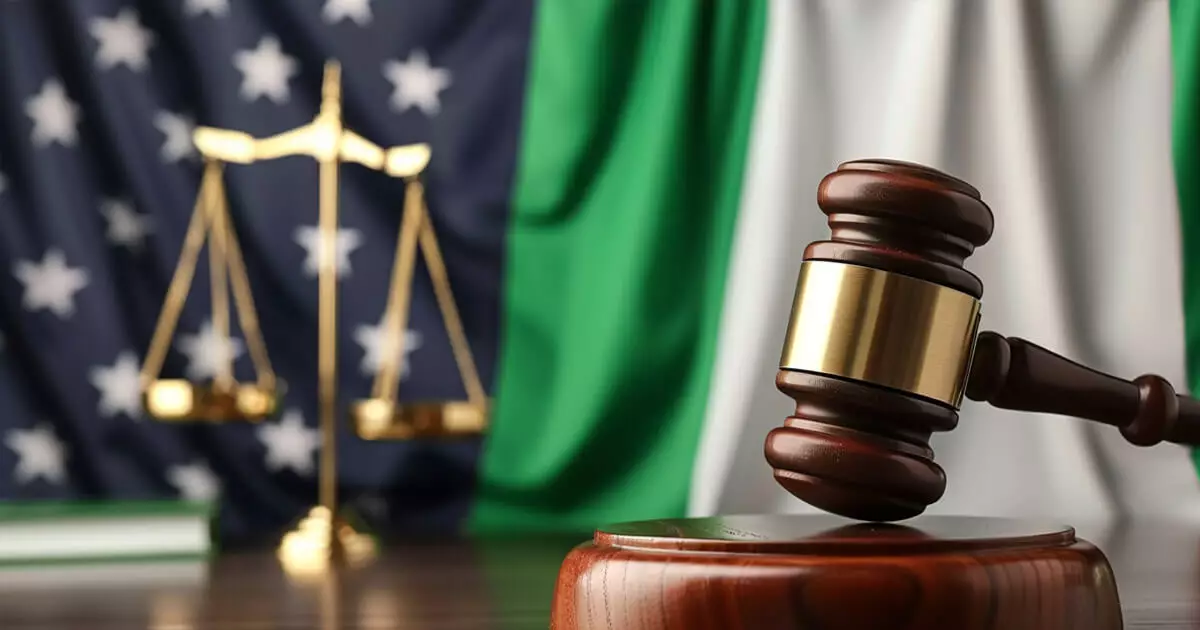In an era where cryptocurrencies are becoming increasingly mainstream, nations are grappling with the dual-edged sword that digital currencies represent. On one hand, they offer unmatched convenience and speed for cross-border transactions, but on the other, they pose significant challenges for law enforcement agencies worldwide. Recognizing these complexities, the United States and Nigeria have established a Bilateral Liaison Group aimed specifically at combating crimes related to cryptocurrencies and illicit financing. This partnership, as announced on October 23, seeks not only to strengthen their cooperative efforts but also enhance their capabilities in tackling the burgeoning issue of crypto-related crimes.
The significance of this new bilateral relationship cannot be overstated, especially in light of recent data highlighted by Chainalysis, which identifies Nigeria as the second-largest adopter of cryptocurrencies globally. This places Nigeria in a pivotal role within the landscape of digital finance in Sub-Saharan Africa, where there’s a notable shift towards adopting innovative financial technologies. In stark contrast, the United States leads in North America with substantial institutional engagement particularly surrounding Bitcoin and Ethereum exchange-traded funds (ETFs). Such a landscape underscores the necessity for international collaborations to tackle the potential misuse of these technologies.
The decentralized nature of cryptocurrencies often serves as a magnet for illicit activities, making it imperative for nations to share intelligence and resources. Recent reports from TRM Labs provide a glimmer of hope, indicating that while the total illicit funds within the crypto ecosystem decreased by 99% year-on-year to $34 billion in 2023, the potential for criminal exploitation remains high. The formation of the Bilateral Liaison Group is a direct response to this danger, offering a platform for both the United States and Nigeria to jointly strategize, enhance regulatory measures, and disrupt financial networks that facilitate crime.
Key objectives of the Liaison Group revolve around enhancing intelligence sharing, bolstering investigative capabilities, and fostering regulatory cooperation. For instance, this collaboration will leverage advanced blockchain analytics to trace crypto transactions tied to criminal networks. Furthermore, the partnership indicates an essential emphasis on bolstering the Nigerian law enforcement framework through training programs and awareness initiatives aimed at educating the public on the perils associated with cryptocurrency.
Ultimately, the collaborative spirit embodied in the Bilateral Liaison Group may pave the way for the United States to forge similar alliances with other nations grappling with the challenges posed by cryptocurrency crimes. By establishing a template for cooperative strategies, both the US and Nigeria aim to create robust frameworks that not only address present challenges but also anticipate and mitigate future risks associated with the evolution of digital currencies.
As cryptocurrencies continue to permeate global markets, partnerships like the one between the United States and Nigeria are essential to safeguarding financial integrity and combating the dark side of digital finance. This initiative may very well signal a new chapter in international cooperation against the evolving threat of cybercrime.


Leave a Reply